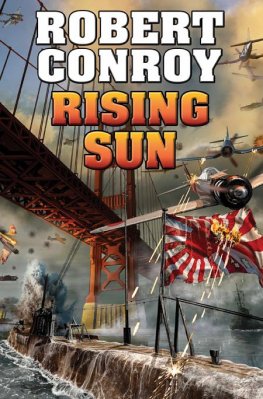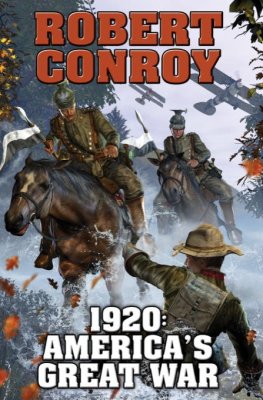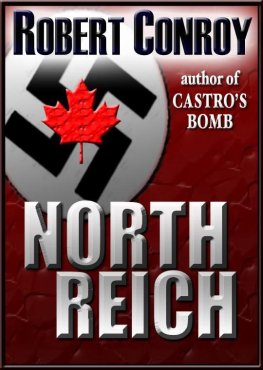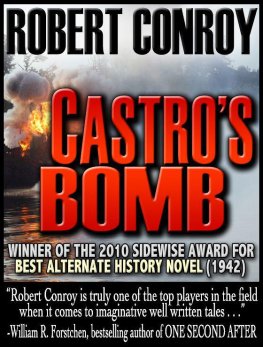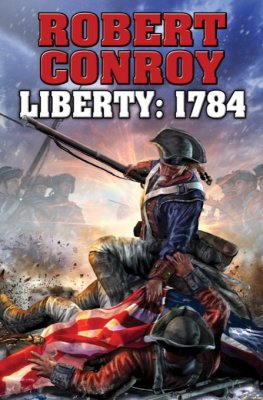Robert Conroy - 1942
Here you can read online Robert Conroy - 1942 full text of the book (entire story) in english for free. Download pdf and epub, get meaning, cover and reviews about this ebook. year: 2009, publisher: Ballantine Books, genre: Art. Description of the work, (preface) as well as reviews are available. Best literature library LitArk.com created for fans of good reading and offers a wide selection of genres:
Romance novel
Science fiction
Adventure
Detective
Science
History
Home and family
Prose
Art
Politics
Computer
Non-fiction
Religion
Business
Children
Humor
Choose a favorite category and find really read worthwhile books. Enjoy immersion in the world of imagination, feel the emotions of the characters or learn something new for yourself, make an fascinating discovery.

- Book:1942
- Author:
- Publisher:Ballantine Books
- Genre:
- Year:2009
- Rating:3 / 5
- Favourites:Add to favourites
- Your mark:
- 60
- 1
- 2
- 3
- 4
- 5
1942: summary, description and annotation
We offer to read an annotation, description, summary or preface (depends on what the author of the book "1942" wrote himself). If you haven't found the necessary information about the book — write in the comments, we will try to find it.
1942 — read online for free the complete book (whole text) full work
Below is the text of the book, divided by pages. System saving the place of the last page read, allows you to conveniently read the book "1942" online for free, without having to search again every time where you left off. Put a bookmark, and you can go to the page where you finished reading at any time.
Font size:
Interval:
Bookmark:
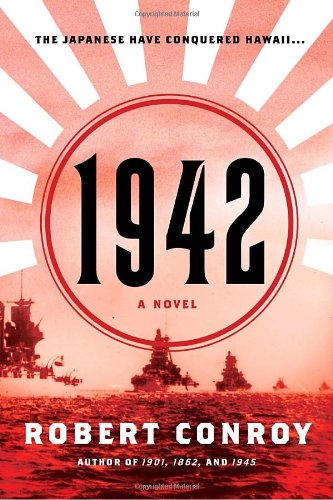
1901
1862
1945
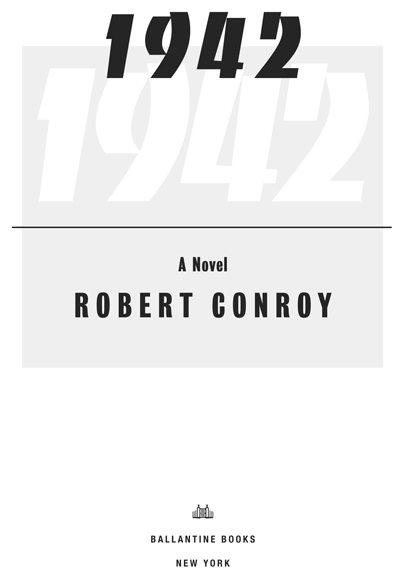
 he attack on Pearl Harbor has resulted in vast amounts of speculative literature, much of it seen through the clear light of hindsight and, therefore, quite useless. Some have focused on the possibility of a plot on the part of President Roosevelt to get us into war with Japan. Not only has this been unproven but the rationale defies logic. Simply put, there was no motive. Roosevelt wanted us to go to war with Germany, not Japan.
he attack on Pearl Harbor has resulted in vast amounts of speculative literature, much of it seen through the clear light of hindsight and, therefore, quite useless. Some have focused on the possibility of a plot on the part of President Roosevelt to get us into war with Japan. Not only has this been unproven but the rationale defies logic. Simply put, there was no motive. Roosevelt wanted us to go to war with Germany, not Japan.
Still, others feel that we had ample warning because we had broken the Japanese codes, which is partly true. We had broken the diplomatic codes but not the military codes, and the Japanese diplomats in Washington were totally out of the loop. They did not know that the attack on Pearl Harbor was coming.
However, there are items of fact that, had they occurred as they were expected to, would have changed the course of the war in the Pacific. The planned final strike on Pearl Harbor by Admiral Nagumo's fleet is one such item. Admiral Yamamoto had counted on it, and the Japanese pilots wished it, but Admiral Nagumo flinched in the face of success and denied it. He was happy with a partial victory and afraid of losing both precious pilots and his ships should the missing American carriers suddenly show up. In effect, Nagumo stole defeat from the jaws of victory
1942 is the story of what would quite likely have occurred if Nagumo had been persuaded to let his pilots attack the oil storage facilities, machine shops, and dry docks at Pearl Harbor. Such a seemingly innocuous event and such prosaic targets, involving only a few score planes and resulting in a few hundred additional casualties at most, could have changed the course of the war in the Pacific.
Indeed, many of the changes could have been permanent and vastly to the advantage of the Japanese.
Initially the changes to history resulting from the final strike would have been small. For instance, I have Admiral Nimitz replacing Admiral Kimmel at a slightly earlier date, as well as Admiral King superseding Admiral Stark in Washington as the extent and implications of the revised disaster become known. Other changes evolve as they would have logically developed as history begins to change.
To simplify matters and make the reader comfortable, I have used the American way of giving the names of the Japanese participants, rather than the Japanese way. Also, I have largely ignored the ramifications of the International Date Line.
And whether what I refer to as the final strike would have been the second or third strike depends on whether one counts the attacks on Pearl Harbor as one or two events.
Everything I've written and all the facts, right or wrong, are products of my own research and imagination.
 dmiral Chuichi Nagumo clasped his hands behind him and glowered as he looked down and across the flight deck of his flagship, the carrier Akagi. The ship's crew lined the deck and lustily cheered each returning hero, and it was both astonishing and exhilarating to see how many of the brave young eagles were home from their morning of triumph.
dmiral Chuichi Nagumo clasped his hands behind him and glowered as he looked down and across the flight deck of his flagship, the carrier Akagi. The ship's crew lined the deck and lustily cheered each returning hero, and it was both astonishing and exhilarating to see how many of the brave young eagles were home from their morning of triumph.
Why then was he so disturbed? The surprise attack on Pearl Harbor had been an overwhelming success that had exceeded virtually all expectations. He had accomplished everything he reasonably felt that he could. Why then did he have this feeling of uneasiness at what should have been the most glorious moment in his life?
Nagumo felt that he knew the answer, and it disturbed him. He was fifty-five, not too old for active command, but he was a man whose career had been without combat experience and bridged several developing technologies. By training and inclination, he was a big-gun man, a battleship man, a believer in traditional surface fighting. Nagumo had served on destroyers and cruisers, and commanded the battleship Yamashiro before his promotion to rear admiral and appointment to preside over the Naval Staff College. He was not a pilot and had never before served on an aircraft carrier.
But in April 1941, Nagumo had been promoted to command the First Air Fleet, which consisted of six carriers and more than four hundred planes. He had then been tasked to command the surprise attack on Pearl Harbor, which would launch Japan into a war with the United States. Because of America's naval might, total surprise was essential to the attack's success. Nagumo had thought it too risky and had protested. His superior, Admiral Isoroku Yamamoto, had overruled him, and he had done as ordered to the best of his abilities.
Kido Butai was the name of the task force that included the six carriers, along with two battleships and attending cruisers and destroyers. When it sailed from northern Japan in late November, Nagumo had been cut off from the rest of the world.
To ensure secrecy, his ships kept total radio silence, and the enforced loneliness preyed on his doubts, causing him moments of near despair. Despite maintaining a stoic exterior, Nagumo was terrified that the Kido Butai would be located and either forced to withdraw in shame or defeated by the angered Americans, who had many more battleships than he.
While he commanded six carriers, Nagumo was still convinced that the battleship, and not the upstart and unproven carrier, was the queen of battle. No modern Japanese fleet had ever been defeated, and Nagumo had a deathly fear that his would be the first.
With luck and skill, they had made it to the launch point without detection. Incredibly, they caught the Americans by surprise and quickly eliminated the American battle line. The American battleship force in the Pacific was destroyed in an overwhelming victory for the Empire of Japan.
So why then was he still in turmoil?
Again, he knew the answer to his own dilemma. Along with some of his senior admirals, the young Turks in his command wanted more. They did not agree with him that the battleships were their main objective; they weren't satisfied with what he considered a total victory, and Nagumo was afraid that their greed would ruin him.
However, Nagumo felt compelled to listen to two of the most vocal of his critics. Commander Minoru Genda had planned the attack and was a protg of Yamamoto's. Genda had fervently argued that the next war, the one Nagumo had just started, would be fought with carriers, and not battleships, as the main protagonists. Genda had been ill; otherwise, he would have been in a plane observing the battle. The thirty-seven-year-old commander was fearless as well as brilliant.
Nagumo thought Genda's idea was preposterous, but then he reminded himself that he commanded six carriers whose planes had just destroyed at least that many battleships. It was very disturbing, and he acknowledged the irony that he now worried about the American carriers, and not their battleships.
The second voice that had to be listened to belonged to Lieutenant Commander Mitsuo Fuchida. Fuchida was thirty-nine, flight commander of the Akagi, and had commanded the first wave over Pearl Harbor. His excited voice had signaled that the surprise had been absolute. Fuchida's uniform was dirty and strain showed on his face, but his eyes were bright, and Nagumo knew the younger man was like a tiger yearning to be unleashed.
Font size:
Interval:
Bookmark:
Similar books «1942»
Look at similar books to 1942. We have selected literature similar in name and meaning in the hope of providing readers with more options to find new, interesting, not yet read works.
Discussion, reviews of the book 1942 and just readers' own opinions. Leave your comments, write what you think about the work, its meaning or the main characters. Specify what exactly you liked and what you didn't like, and why you think so.

